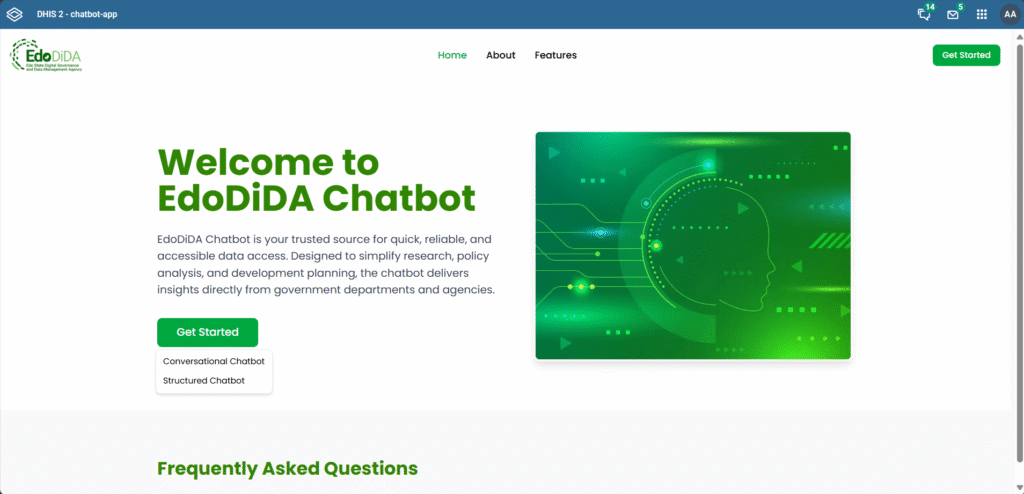Edo State Data Governance Project for Inclusive Data Driven Decision and Evidence-Based Policy Making, Improved Service Delivery, and Overall Economic Improvement
Partners

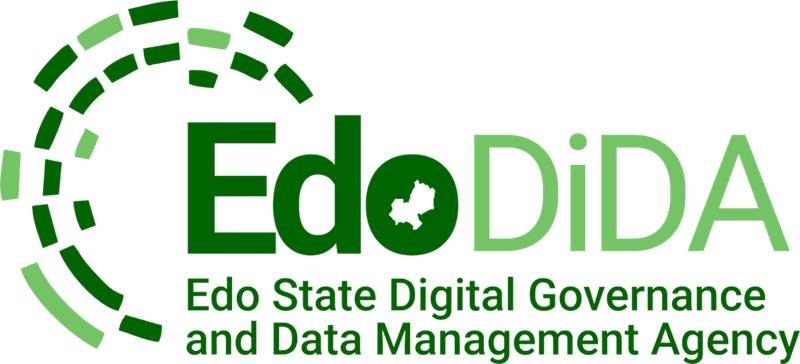

The Gates Foundation sponsored, and Data Science Nigeria (DSN) implemented Edo State Data Governance project is a comprehensive Data Governance Platform, powered by the District Health Information System (DHIS2) and Artificial Intelligence (AI). The platform has enabled data-driven decision-making across Ministries, Departments, and Agencies (MDAs), generating over 100 decision dashboards and over 500 actionable insights. Through data centralization and integration of geospatial and third-party datasets, the platform supports strategic resource allocation, from optimizing teacher deployment to enhancing primary healthcare service delivery, and operational planning and resource optimization from community evolution profiling to agricultural land suitability mapping. The Data Governance initiative aimed at improving service delivery through the strategic use of data and digital tools to bring together critical functions of government such as citizen feedback, education, agriculture, and geospatial planning under a unified digital architecture designed to improve how government functions, responds, and plans.
At the heart of the initiative is a firm belief: governance should be guided by accurate, timely, and actionable data. Through the Data Governance project, the state is moving from reactive governance to a more transparent, proactive model that is responsive to the needs of its people. Recognizing that data is the backbone of modern governance, this project is powering Edo State to set the pace in Nigeria by deploying an integrated system that turns fragmented datasets into actionable intelligence for policymakers, ministries, and citizens.
Enabling Transformation through Data
Core Outputs of the Data Governance Project
Citizens’ Feedback System
Built on a DHIS2 tracker program, the Citizens’ Feedback platform provides a feedback loop that enables everyday Edo residents to report service gaps in schools, clinics, roads, and public infrastructure. Feedback is captured, validated, and routed to responsible MDAs with automated alerts. The system has handled over 12,000 real-time reports to date.
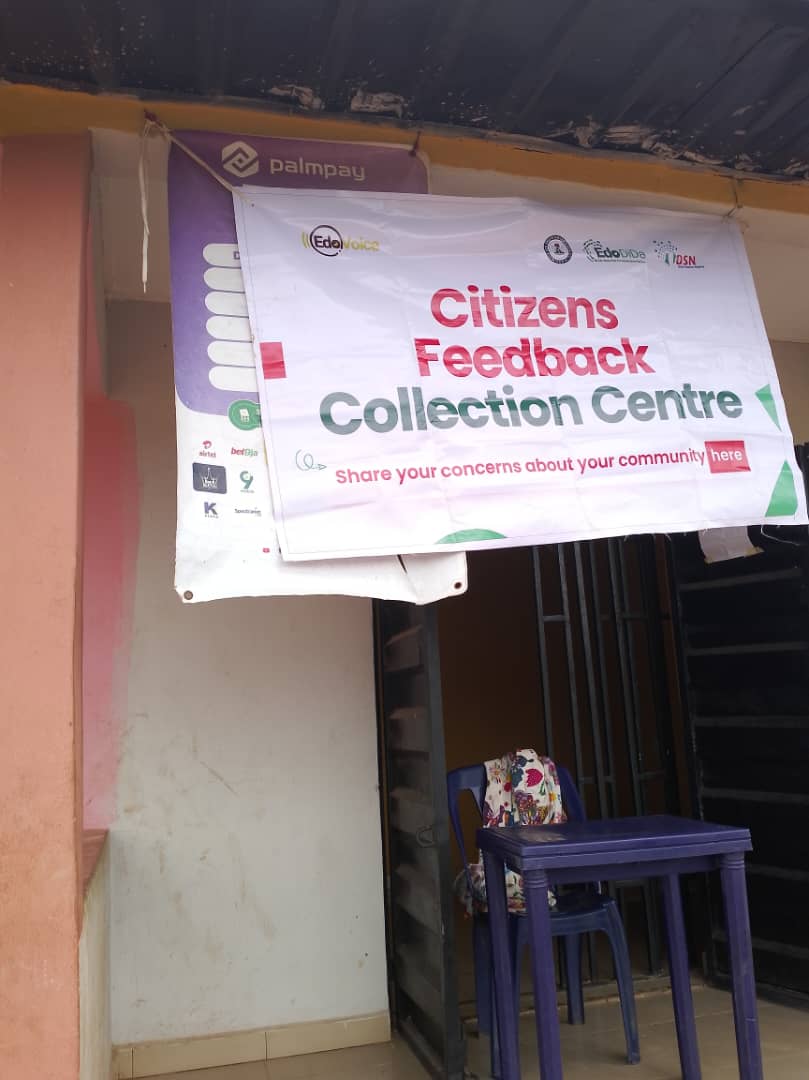
Education Management Information System (EMIS)
The Education Management Information System (EMIS) developed under the project is helping the state build a clear picture of what is happening in public schools – from students’ punctuality and annual enrolment numbers to teacher’s punctuality report, distribution and infrastructure gaps. The link between the EMIS and the Citizens’ Feedback System means the state can now cross-validate data: community complaints can be immediately checked against system records and actioned more efficiently.
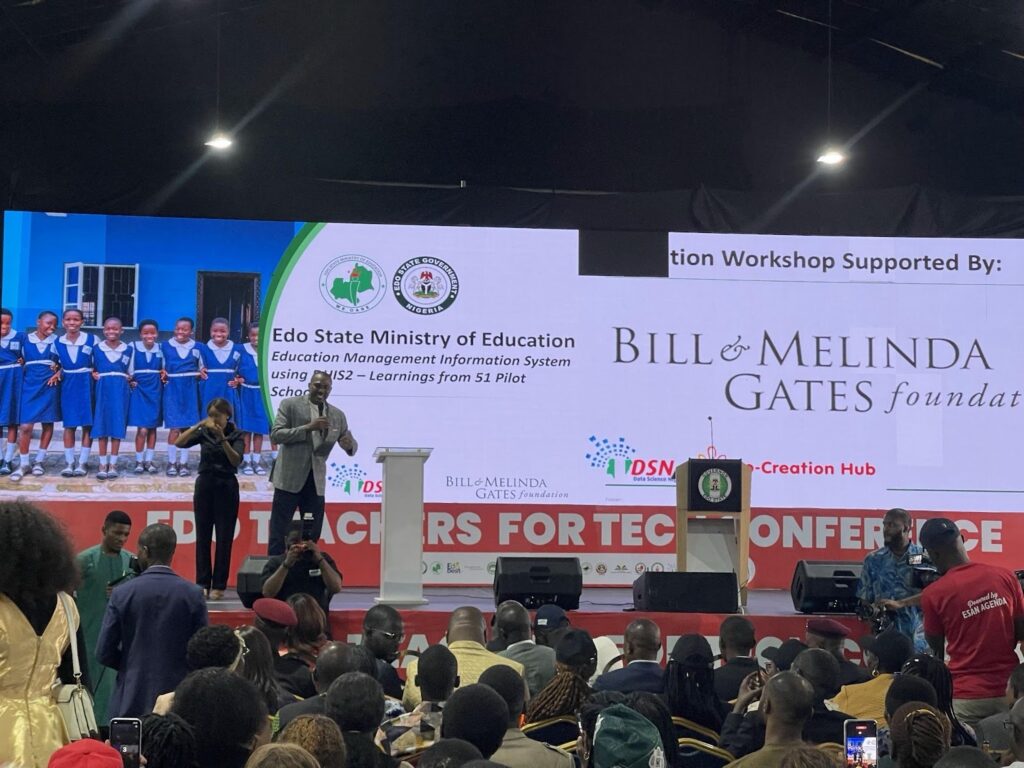
Geospatial Analysis for Agricultural Intelligence (NDVI)
To support rural planning and food security, the Edo Data Governance platform includes a Normalized Difference Vegetation Index (NDVI) and geospatial mapping component. This provides satellite-driven agricultural monitoring and land-use insights such as flood susceptibility to detect flood-prone areas, helping the Ministry of Agriculture optimize land use and vegetation, and guide targeted interventions in poverty prone communities. Other geospatial insights of the Data Governance platform like community evolution and poverty categorization index informs tax planning and resource allocation, etc.
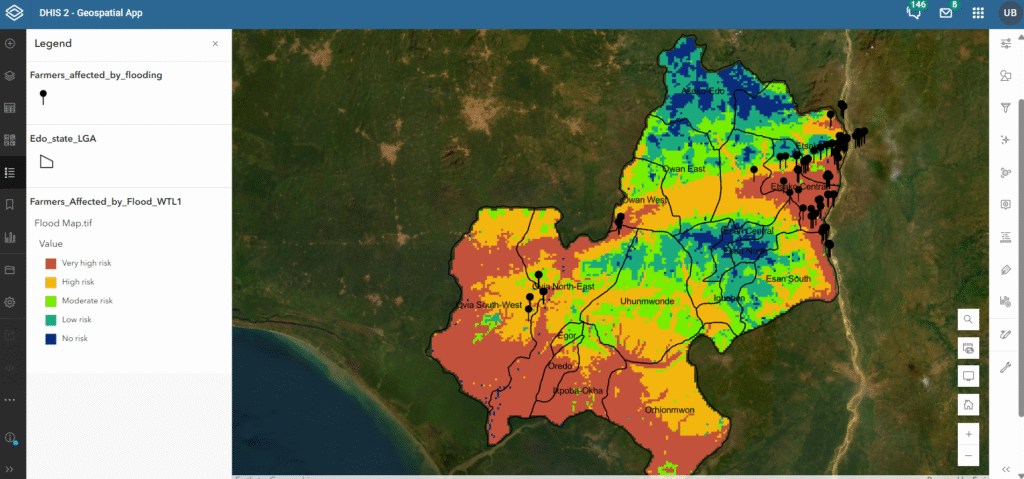
Scenario Planning Tool
The Scenario Planner is a data simulation module that helps MDAs anticipate the impact of different policy options. The current Scenario planners focus on teachers’ allocation, Doctors’ and Nurses’ allocation, and Farmers’ credit scoring system. The tool enables evidence-backed forecasting using real-time field data. This marks a new chapter in predictive governance at the subnational level.
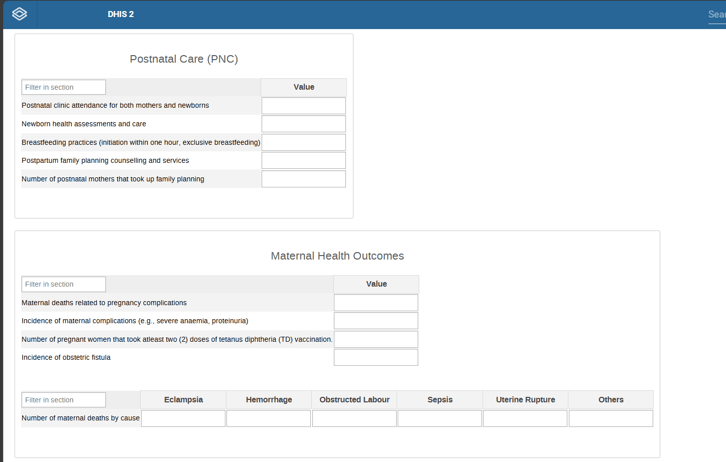
Extended Edo Data Governance Applications and Institutional Capacity
In addition to the core systems and outputs, the Edo Data Governance Project includes a Health Management Information System (HMIS) and framework to support healthcare service delivery, maternal health tracking, and immunization coverage across Primary Healthcare Centers (PHCs). The HMIS is built on DHIS2, with unique frameworks and validation rules for consistency and data quality.
To ensure sustainability, over 400 Data Champions (state officers and stakeholders) have undergone capacity building, covering data analytics, data visualization using the popular DHIS2 platform, data protection and security, and field validation methods. The project is backed by comprehensive Standard Operating Procedures (SOPs), dashboards, and integrated Data Quality Assurance mechanism that checks accuracy and prevents duplication.
LLM-powered chatbot to provide snackable insights
The embedded EdoDiDA Large Language-enabled Chatbot is also an added integration to transform, provide quick access and democratize complex government documents with rich analytic insights as output for less technical members of the government in conversational style.
